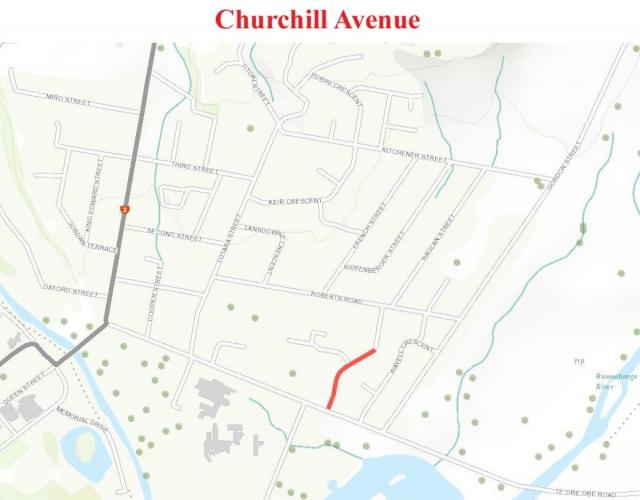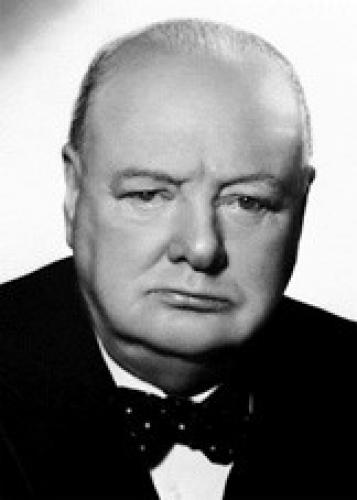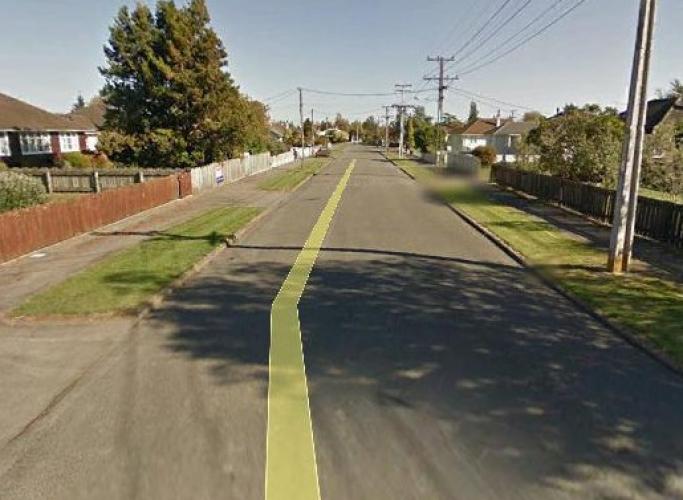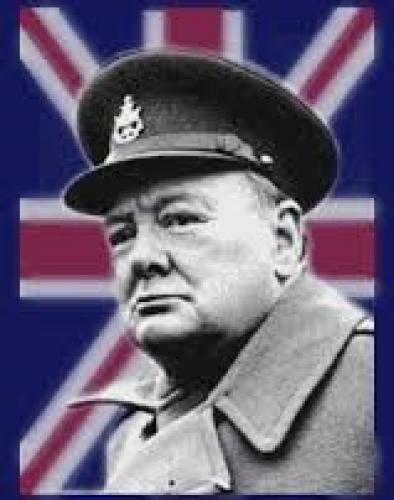099 Churchill Avenue Masterton, street scene 2017
Reason for the name
This street was named in honour of Sir Winston Leonard Spencer-Churchill, British Prime Minister and Wartime Leader.
Churchill Avenue is a small street in the suburb of Lansdowne, Masterton. Most of the streets in this part of Masterton are named after leading British and New Zealand military figures.
These include Gordon Street (Gordon of Khartoum, died 1885); Roberts Road (Lord Roberts VC, c-in-c South African War, died 1914); French Street (Sir John French, cavalry leader in South African War, c-in-c BEF 1914-1915); Raglan Street (c-in-c British Army, Crimean War, died 1855); Kitchener Street (Lord Kitchener, victor at Omdurman, c-in-c after Roberts in South African War, War Minister 1914-1916, died 1916). These streets were named before World War One, reflecting pre-World War One fame.
Churchill Avenue links Te Ore Ore Road to Lett Street and Roberts Road. It was part of a state housing estate built after World War Two.
The street was named (along with Montgomery Place) at the monthly Town Planning meeting of Masterton Borough Council on 13 September 1949. The minutes do not record who proposed and seconded the name.
Author: Neil Frances Wairarapa Archive
Sir Winston Leonard Spencer-Churchill KG, OM, CH, TD, DL, FRS, RA was a British politician, army officer, and writer, who was Prime Minister of the United Kingdom from 1940 to 1945 and again from 1951 to 1955. As Prime Minister, Churchill led Britain to victory in the Second world War.
Sir Winston Churchill (1874-1965) was the Prime Minister of Great Britain during most of World War Two and embodied the defiant spirit of Britain and the British Empire in opposing Nazi Germany, Fascist Italy and later Imperial Japan.
Churchill was part of the Marlborough family and played a major part in British political and military history for over 50 years. He joined the British Army in 1895 and served in various locations including India, the Sudan and South Africa. He combined military service with acting as an observer, correspondent and author.
He became an MP in 1900, rising to high office and was First Lord of the Admiralty on the outbreak of World War One. He was the main proponent of the Gallipoli Campaign. When that campaign failed he resigned and briefly became a soldier on the Western Front.
Churchill continued as a politician with several political parties, serving as Chancellor of the Exchequer 1925-29. Through much of the 1930s he was out of office and not until the rise of Italy and Germany did he return to public life, warning of the dangers of fascist dictatorships.
When World War Two began, Churchill was again made First Lord of the Admiralty and in 1940 replaced Neville Chamberlain as Prime Minister of Great Britain. His decision to continue the war after France’s surrender, his wartime speeches and his success in mobilising the British Empire for war made him perhaps the most prominent British leader of the 20th century. He was active in forming British war strategy and played a large part in creating an alliance with United States and particularly President Franklin Roosevelt.








